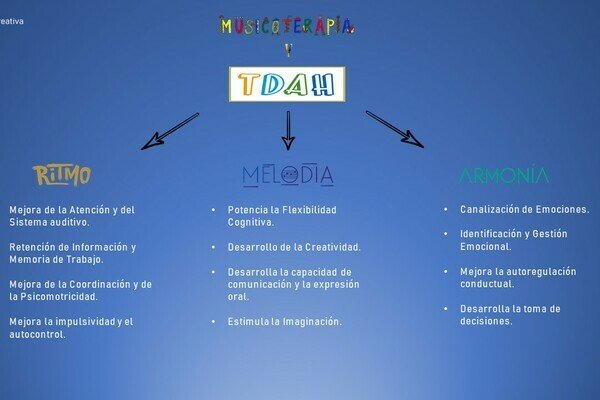How to identify attention deficit disorder without hyperactivity? When does lack of attention imply ADHD? Discover how to address this disorder.
He ADD or attention deficit disorder without hyperactivity This is one of the types of ADHD that can exist. Although this disorder is well known for the symptom of hyperactivity, the reality is that there are different types. For example, there are people with ADHD who do not suffer from hyperactivity but from attention deficit.
What is attention deficit hyperactivity disorder?
He attention deficit hyperactivity disorder (ADHD) It is a neuropsychiatric disorder that makes it difficult for people to pay attention, control impulsivity (that is, be able to think things through) or control behavior. In the vast majority of cases, this disorder usually interferes with the quality of life since it interferes with the daily functioning of the person who suffers from it. Currently, three different types of ADHD are described: Attention-deficit disorder without hyperactivity, Attention-deficit disorder with hyperactivity, and Combined attention-deficit disorder (symptoms of inattention and hyperactivity occur along with impulsivity). .
The people who present the attention deficit disorder without hyperactivity They usually have significant problems such as inattention, but they present few or no symptoms of hyperactivity. In these cases, individuals often have trouble paying attention to details, are easily distracted, often have trouble organizing or completing tasks, and often forget routine tasks.
Symptoms of attention deficit hyperactivity disorder
According to the APA (American Psychological Association), there are nine symptoms that can be associated with lack of attention Although almost everyone can experience problems with inattention at times, people with this type of attention disorder usually suffer from it routinely. ADD and its symptoms often make it difficult for those who suffer from it to function daily at work, with family members, or in social situations:
- Concentration problems: The lack of attention It interferes with tasks that require concentration such as work, home or games.
- Not paying attention to details: The people with attention deficit n they tend not to pay much attention to details, which can cause them to frequently make mistakes due to carelessness at work or when carrying out different tasks.
- Lack of organization: Often, the people with attention deficit disorder They often have problems organizing tasks and other activities. This involves not meeting deadlines, as well as carrying out tasks or work in an organized manner.
- Distraction: This lack of attention Due to attention deficit hyperactivity disorder it causes people to be constantly distracted.
- Lack of compromise: The people with attention deficit disorder without hyperactivity They often fail to follow instructions or fail to complete work assignments as well as other household tasks.
- Recurring forgetfulness: Another of the symptoms of inattention This disorder involves constantly forgetting to do routine tasks, such as keeping appointments, returning calls, among others.
- Avoid certain tasks: People who suffer from a attention deficit and its symptoms They may try to constantly avoid tasks that require a long period of mental concentration.
- Not paying attention in conversations: Often, people with a attention deficit without hyperactivity They may seem not to listen to others’ conversations.
These are some of the main symptoms that people who have a attention deficit without hyperactivity When someone has not been diagnosed with this disorder, they usually experience serious or chronic problems due to five or more of these symptoms. In addition, people who suffer from attention deficit disorder without hyperactivity may be affected by other disorders such as depression and/or anxiety.

Attention deficit disorder and its treatment
Although there is no cure for attention deficit disorder without hyperactivity , people who receive treatment can treat it successfully. Typically, there are several different approaches to treating people with an attention disorder, but generally treatment involves a combination of medication and therapy with a professional psychologist.
One of the most used therapies such as treatment of attention deficit disorder without hyperactivity It is precisely cognitive-behavioral therapy (CBT), in which patients are helped to identify problematic behaviors and to create and implement strategies to self-regulate (that is, control their behavior, emotions and thoughts), as well as to change behavior and achieve certain goals. Additionally, group therapies have also been identified as an effective treatment for people suffering from an attention disorder.

How to deal with attention deficit disorder without hyperactivity?
There are a series of tips that you can follow to try to control yourself when faced with symptoms of this disorder and lack of attention :
- Avoid distractions : When you want to focus on a specific task, it is important to prepare everything to avoid all possible distractions. For example, keep your work area quiet without distractions or noise, turn off your phone, or use soft music to cover outside noise.
- Maintain an organization: For people who suffer from a attention deficit disorder organization is key. Therefore, always reserve a moment in the morning to organize all the tasks of the day. It is also essential to work and complete only one task at a time before moving on to the next.
- Create routines or specific places : To avoid losing or forgetting certain important things, you can assign a specific place for those items and to-do lists that you need to remember.
- Take breaks: To avoid the lack of attention It is also crucial to take certain breaks from time to time. It is essential for people with this attention deficit disorder to try to avoid boredom.
If it is treated and worked on the aspects of a attention deficit disorder without hyperactivity , people can end up relieving many of the problems related to their symptoms. Therefore, in these disorders it is crucial to go to a professional psychologist to receive adequate treatment.









